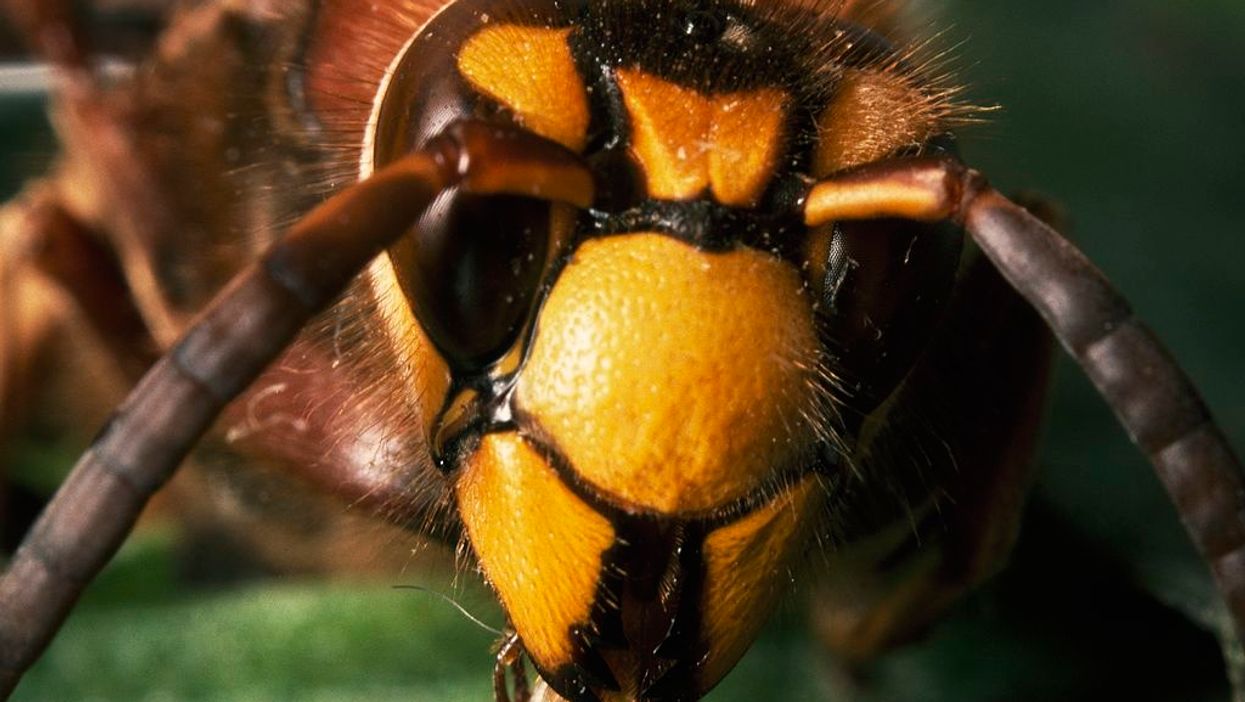
DeAgostini/Getty Images

Maybe quarantining isn't such a bad idea after all.
In case you doubted that 2020 couldn't get worse, I have two words for you: "murder hornets." The deadly Asian giant hornet, the largest sized species of hornets in the world, has been discovered in the United States for the first time ever.
The Asian giant hornet is also known as "murder hornets," the "Giant Sparrow Bee," and the "yak killer." The species is native to temperate and tropical Eastern Asia. However, beekeepers in northwestern Washington state and Canada have found hundreds of decapitated honey bees, pointing to the presence of Asian Giant Hornets in North America.
The Asian Giant Hornet preys on larger insects, such as praying mantises, wasps, other hornets, as well as bees. The murder hornets are so lethal that in a matter of hours, they can wipe out entire colonies of eusocial insects, including bees. An individual hornet can kill 40 European honey bees in one minute.
"With queens that can grow to two inches long, Asian giant hornets can use mandibles shaped like spiked shark fins to wipe out a honeybee hive in a matter of hours, decapitating the bees and flying away with the thoraxes to feed their young," the New York Times reported. "For larger targets, the hornet's potent venom and stinger — long enough to puncture a beekeeping suit — make for an excruciating combination that victims have likened to hot metal driving into their skin."
30 Japanese Giant Hornets kill 30,000 Honey Beeswww.youtube.com
The sting of an Asian giant hornet can even kill humans. Over the course of three months in 2013, Asian Giant Hornets killed 42 people and injured 1,675 people in China. Japan reports that Asian giant hornets kill 50 people a year. Maybe quarantining is a great idea after all.
The murder hornet's toxic venom destroys red blood cells, which can result in kidney failure and death, explained Justin O. Schmidt, an entomologist at the Southwest Biological Institute in Tucson, Arizona. Some people are more allergic to insect stings than others, which can cause a fatal anaphylactic reaction that closes airways or triggers cardiac arrest.
Researchers want to stop the deadly murder hornets from establishing a home in the U.S. and decimating bee populations.
"This is our window to keep it from establishing," Chris Looney, an entomologist at the Washington State Department of Agriculture, told the Times. "If we can't do it in the next couple of years, it probably can't be done."
The Asian giant hornet was also recently found across the border in Canada.
How long before there is uproar about the name "Asian giant hornet?" Will there be a campaign to change the name to the scientific name of "Vespa mandarinia?" That also links the deadly insects to China, so that won't work. Looks like we have to call them "murder hornets."